
Every 2 years on odd numbered years, Titleist releases a new model of the popular Pro V1 and Pro V1x. The Pro V1 introduced back in 2000 and Pro V1x in 2003 was a game changer. Since then with every model, incremental improvements have been made. For the 2021 Pro V1 however, Titleist has changed every aspect of the ball from cover to core. That's a bold statement to make! Let's dive into the details.
BUT first, let's clarify that the overall difference between the Pro V1 and Pro V1x is largely the same. The Pro V1x will spin more, have a higher launch angle and firmer feel. The Pro V1 will have a softer feel, moderate spin and lower launch compared to the Pro V1x. So if you play the Pro V1x today, you'll still play the Pro V1x in the 2021 model.

For the 2019 iteration Titleist put extra emphasis on distance. For 2021 they have not called out any particular area, but, as mentioned above, they have made the most significant improvement to the ball since it's original launch, which is intended to translate into total performance improvements and consistency for every shot.
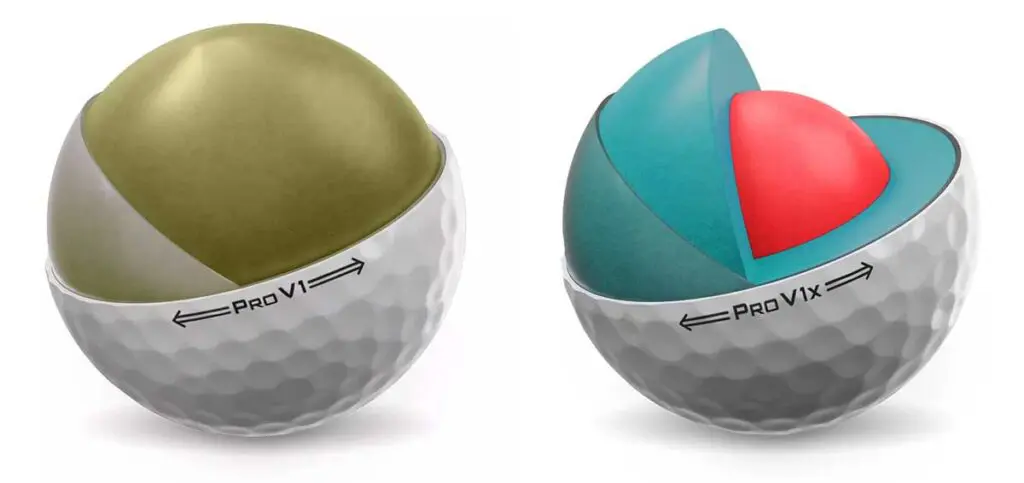
You may or may not care about the intricacies of golf ball construction, so we've tried to simplify the changes by breaking it down into what most golfers care about - feel, spin and distance.
Both Pro V1 and Pro V1x will have a softer feel than the 2019 model. This has been achieved by using a reformulated softer urethane cover. What does this mean to you? More spin for greenside control on finesse shots and short approach shots.
Secondly, the softer cover will provide a more responsive feel for your short game. Now, we understand that this can be highly subjective. As golfers, we focus on our balls, clubs, equipment and technique, but we all know that golf is much a mental game as any. The instant you play the shot, based on the sound and the feel at impact, even before seeing the ball, you know instantly if it was a great shot or if you f*cked up.
Titleist claims the new reformulated cover will give you better feedback and feel. They've also made continued improvement in manufacturing technology and quality to control, so every ball produced will be identical.
It’s not simply a matter of changing the urethane formula. It’s a complex process involving a chemical reaction that has to be performed under very strict conditions. And when you create a new formulation, the viscosity of the material, the gel time, the temperatures required – everything changes. Fortunately, we designed the process and we machine all the tooling ourselves. That level of control allows us to very finely tailor our urethane formulations and consistently achieve the exact hardness we want. That gives us the exact spin and feel that we're looking for on every new Pro V1 and Pro V1x we make.
Mike Madson, Director of Aerodynamics & Research Engineering, Titleist
We touched on spin when we talked about feel, but let's dive in a bit more. More spin isn't always better. Off the tee and with your long irons you want less spin (check our blog on golf ball spin for more details), around the green you generally want more spin, but more than that you want to be in control of how much spin you impart on the ball. That's where multi-layer balls come into the picture.
The 3-piece Pro V1 and 4-piece Pro V1x uses multiple layers to reduce spin off the driver and long irons (inner core and casing layer plays a part here) and increase spin on approach shots (outer cover plays a part here).
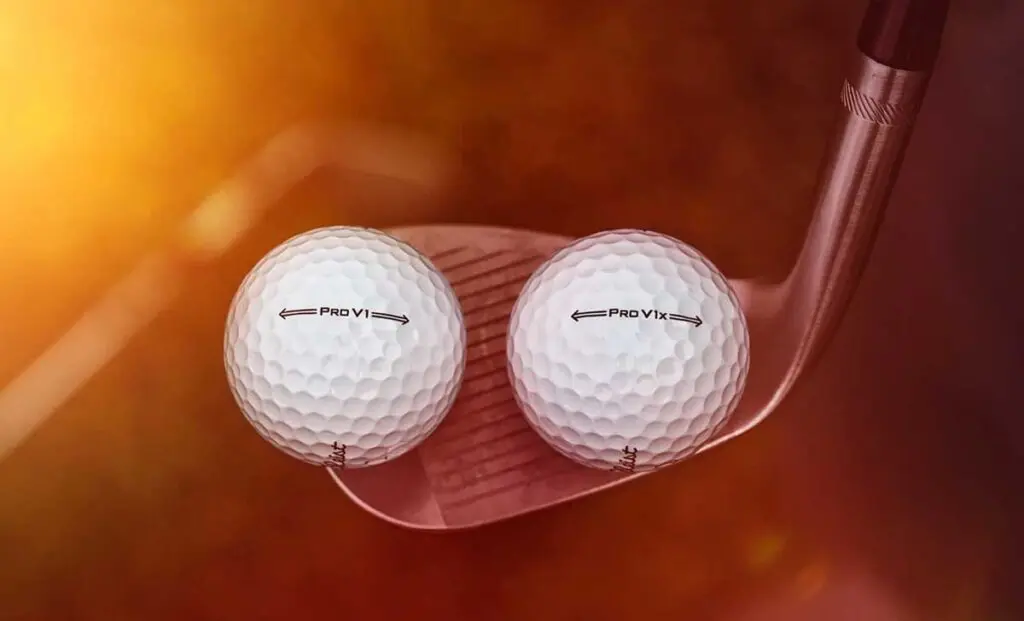
If you want to get into the weeds the Team Titleist blog has some good info.
On shots with more lofted clubs like wedges, the cover plays a much larger role than the core and casing layer. By using a softer urethane formulation, the cover flexes on these shots and gives more at impact. More of the cover interacts with the grooves of the club, creating more friction. The more friction you have, the more spin you can generate.
Brian Comeau, Director of Materials Research, Titleist
Yep, distance! We all want more distance so we can drive the green on that par 4 right? Distance was a key focus area in the 2019 model, so how did Titleist improve on this for 2021? By reformulating the casing layer and core, and changing the dimple pattern for the first time since 2011. To keep things simple I'll leave it that, but if you want all the details the Team Titleist blog has it.
The bottom line here is the 2021 Pro V1 and Pro V1x will be have a fast ball speed and less spin off the longer clubs resulting in more distance.
The new Pro V1 and Pro V1x both utilize a new high flex modulus ionomer material in the casing layer. We first experimented with high flex casings in AVX development. We took that a further step and saw great success when we incorporated HFM into the casing design for the Pro V1x Left Dash ball.
This material is more lively, more resilient than previous Pro V1 formulations and generates faster ball speed. To counterbalance this new, stiffer casing layer, we formulated a completely new, softer core. That allowed us to keep the compression neutral, but the softer core gave us the added benefit of lowering the spin rate off the tee and with long irons. The net result is more speed with less spin – a perfect combination for longer distance where you need it.
Brian Comeau, Director of Materials Research, Titleist
Here's the rundown of the changes made to cover, inner layers and core:
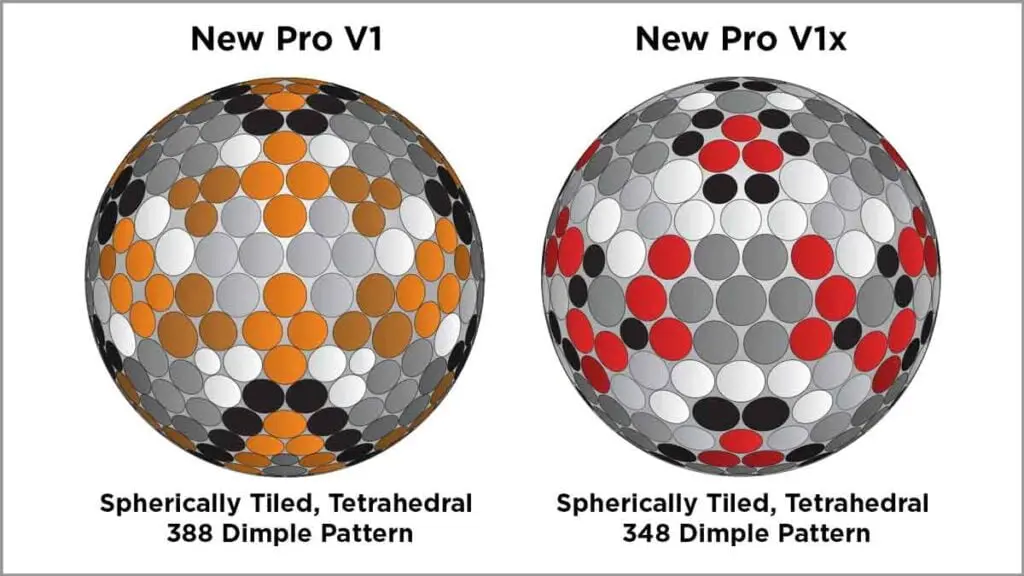
While this year's change is big in terms of Titleist touching every piece of the ball including the dimple pattern, in terms of performance it's not a game changer. Yes, it will be a better ball, but don't expect it to shave 10 strokes off your game. USGA rules force manufacturers to make incremental changes to golf ball design and the fairway of innovation can be a bit narrow.
What else is the same?
The 2021 Pro V1 and Pro V1x first appeared on the PGA Tour at the 2020 Shriners Hospitals for Children Open in October at TPC Summerlin.
During the 2021 Pro V1 and Pro V1x seeding process early adopters included Justin Thomas (Pro V1x), Adam Scott (Pro V1x), Tony Finau (Pro V1) and Cameron Smith (Pro V1x) to name a few.
Cameron Smith became first to shoot four rounds in 60s at the Masters using the 2021 Pro V1x.
“When I first tested it, it was a bit hotter off the driver, which was great. The ball flight and windows were great. But the biggest thing that stuck out was the control coming out of the rough and around the greens. I can control my shots – especially those difficult, soft shots – so much better.”
Cameron Smith
Titleist says it's right for everybody. If you aren't playing on the PGA Tour (or maybe even if you are) we think you'll do just fine with the 2017 or 2019 model years or even the older models.
Our opinion is biased, we don't think you should pay $50/dozen for golf balls, so our recommendation is to always buy used Pro V1's. You'll enjoy the game more since you don't have to worry about losing $4 in the water or in the woods as you get ready to tee off.
Updated - June 2021
The new 2021 models started to be available in stores January 2021 and we have managed to snag some premium used 2021 Pro V1s. It's a limited stock for now so grab some now and let us know what you think of the 2021 Pro V1.
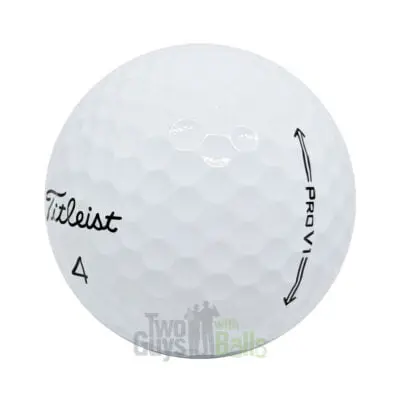
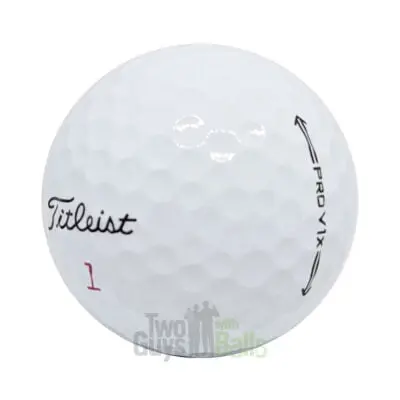
We still have plenty of 2017's and 2019's in stock too 🙂
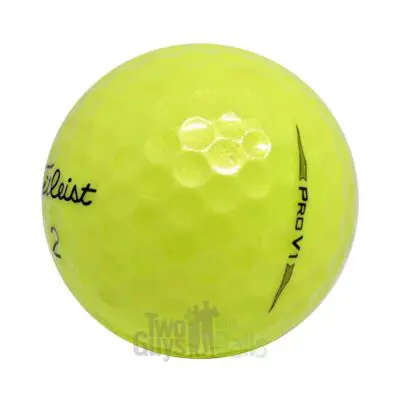
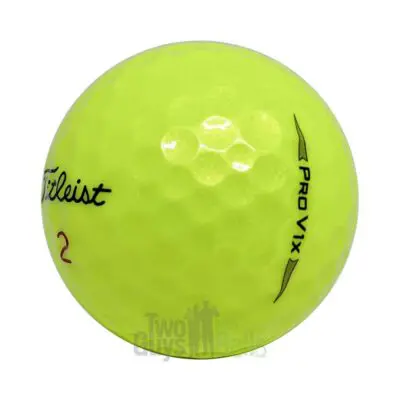
If for some reason you dropped $50 and played a round with the new 2021 Pro V1 or Pro V1x or managed to grab some used 2021 Pro V1s from us, let us know what you think in comments.
Are the 2017 and 2019 refurbished balls
John, thanks for the question. The Eagle and Birdie grade of our balls will never have refurbished/refinished balls. The Par grade does allow for refinished balls. Hope that answers your question?
What is difference between the enhanced provx and provx